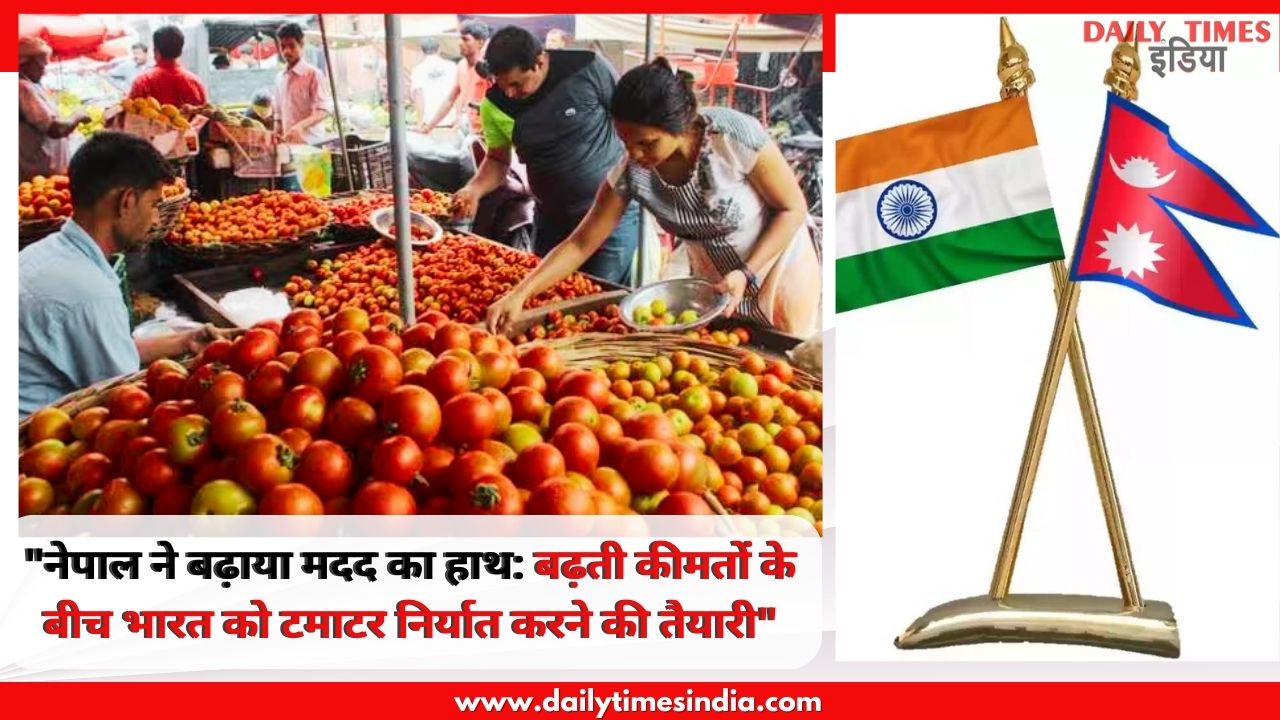New Delhi: In a bid to extend a helping hand to India and alleviate the surging tomato prices in the country, Nepal has stepped forward to export tomatoes across the border. The collaborative effort aims to address the substantial shortage of tomatoes caused by adverse weather conditions in India.
The news agency PTI reported that Nepal is not only prepared to supply tomatoes to India but also intends to establish a long-term export relationship. To facilitate this initiative, Nepal has requested easy access to the Indian market and other essential facilities.
In a significant development, India’s Finance Minister, Nirmala Sitharaman, announced that the import of tomatoes from Nepal has already commenced. The move is part of a broader strategy to augment the tomato supply within India’s domestic market by leveraging Nepal’s resources.
Following the damage inflicted on the tomato crop due to inclement weather, India has witnessed an acute scarcity of this essential ingredient.
The present tomato prices range from Rs 120 to 150 per kilogram, a significant escalation from the Rs 300 per kilogram mark witnessed just a month ago.
Shabnam Shivkoti, Nepal’s Agriculture Minister, expressed the nation’s readiness to export not only tomatoes but also other vegetables to India. However, this collaborative effort hinges on India providing streamlined access to its market. Additionally, Nepal has stipulated the requirement for certain complementary facilities to enable this trade.
Although Nepal has initiated the export of tomatoes to India, the current quantity remains limited. Agriculture Minister Shivkoti clarified that there is no definitive agreement yet for large-scale tomato exports.
Presently, unofficial channels facilitate the shipment of approximately 70 to 90 thousand kilograms of tomatoes daily from Nepal to India. This interim measure highlights the potential and eagerness of both nations to address the pressing issue of tomato scarcity and the subsequent price inflation.
The collaboration between Nepal and India marks a proactive step towards regional cooperation, particularly in times of agricultural crises. As both countries navigate the complexities of trade negotiations and market access, the ultimate goal remains centered on ensuring a stable supply of essential commodities, such as tomatoes, to benefit consumers on both sides of the border.






